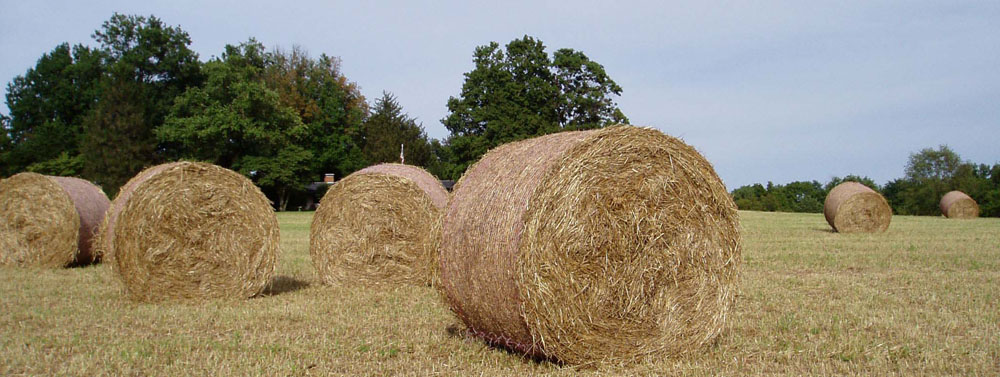Unpacking Applied Academic Agribusiness Programs
I had the incredible opportunity to build an undergraduate agribusiness program at Greenville University for nearly a decade beginning in 2016. I have four agricultural degrees from public land grant universities and worked in university research and extension. But working at a resource-constrained private university without an agricultural college was incredibly illuminating. Rather than a price discovery process, it was an agribusiness program discovery process. What does it take to be a relevant, credible agribusiness degree?
Today’s chart is the product of trying to convey the attributes of a replacement director of agribusiness as I moved out of that position. I fascinated my science faculty colleagues at GU with my ability to speak academic science. I have a strong science background and am conversationally literate, but I do not have the practiced discipline to conduct basic science research. I joked that I only played a scientist on TV.
At best, I am a trained applied mathematician. …Well, as a PhD, ag economist I am at least an applied economist. Economists in turn, like statisticians, are applied mathematicians.
The last leg of the academic agribusiness ‘stool’ in which I accumulated skills, was agricultural education. I recall during a training as an extension specialist, the happy discovery that there was an entire education disciple devoted to teaching. I didn’t have to reinvent that wheel.
I am not sure when I earned the title of educator, but after 3 years in University of Missouri-Extension and 8 years as faculty (even tenured) at Greenville University, I had become a teacher. That transformation relied on real-time feedback from students and a lot of coaching from faculty peers. Two organizations that played significant roles in my educational training were the Teaching Learning and Communication (TLC) Section of the Agriculture and Applied Economics Association (AAEA) and the Illinois Agricultural Education & FFA Department.
The AAEA-TLC are generally ag economists that excel at teaching. The IL Ag Ed group are educators that excel in everything agricultural. That was illuminating. The agricultural educators shaped the standards for high school and community college ag educational programs. The 4-year undergraduate and graduate programs at public universities were shaped by ag and applied economists that loved teaching. Functionally, the transition from a community college to a 4-year degree program was seamless.
Another anchor in building the GU agribusiness program was active membership in the St. Louis Agribusiness Club. Greenville, Illinois is an agricultural community, 45 miles east of St. Louis, Missouri. Part of the motivation for Greenville University to get into agribusiness education is that if a business leader spoke in a GU classroom, it was most likely from an agribusiness. All GU business students get trained indirectly in agribusiness management. But support and encouragement from the St. Louis Agribusiness Club maintained and built new networking resources and provided a benchmark for commercial agribusiness, where academic agribusiness students were headed.
The largest challenge was teaching the language of agriculture to agribusiness students that had both farming and non-farming backgrounds. It worked out, because part of understanding agribusiness meant building communication and basic analytic skills. Greenville University had solid traditional business management, accounting, and marketing degrees. The agribusiness curriculum relies on courses in all three disciplines.
A point here is that the core agribusiness classes looked a lot like those at public agricultural colleges. But about a third of the agribusiness courses at GU were intensive agricultural terminology and skill-building classes that did not look like traditional public program classes. At public ag institution most of the agricultural courses have the descriptor ‘ag’ in front of each topic. There is a comfortable redundancy of agricultural language learning over a four-year education. At GU the agricultural language building relies on three classes that more intensively apply agricultural jargon and skills. These were the most difficult to communicate to university administrators and students.
As it happened, the agribusiness graduates were always grateful for the crucible of ag skill building that they endured. Because doing business on the agribusiness frontier, in reality, is far more intense than agribusiness classes.
The fledgling GU agribusiness program works best at the small private college environment. It is offered online in addition to on campus. The GU online agribusiness students were generally working leaders that were changing their world before entering into the program. They were motivated and brilliant.
Training young agribusiness professionals is compelling from the focus on application. It became clear working with other peers at larger ag institutions, that part of their land grant mission was to build new agricultural professionals (teachers and scientists). The mission of the GU agribusiness program was to provide workforce ready innovative and confident agribusiness managers. Many traditional public universities focus on theoretical underpinnings required for professional qualifications. Agribusiness managers rely more on applied skills than the theoretical underpinnings.
I have four degrees, 12 years of agricultural college courses, (a BS, 2 x MS, and a PhD). It took 12 years of college to hone my applied skills, plus 30 years of industry ag economic solutions. But that theoretical underpinning is not necessary to be successful in agribusiness.
It is good to be back in the blogging space. Some spring projects distracted my blogging focus but look forward to writing more in the coming weeks.



Comments
Unpacking Applied Academic Agribusiness Programs — No Comments
HTML tags allowed in your comment: <a href="" title=""> <abbr title=""> <acronym title=""> <b> <blockquote cite=""> <cite> <code> <del datetime=""> <em> <i> <q cite=""> <s> <strike> <strong>